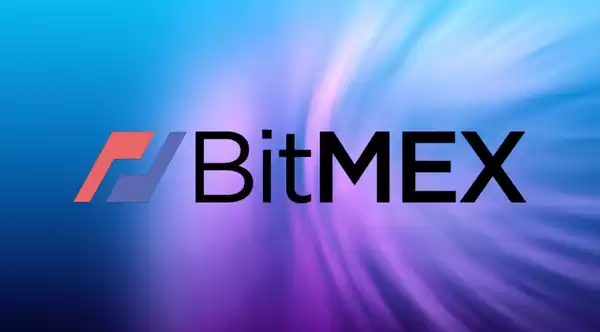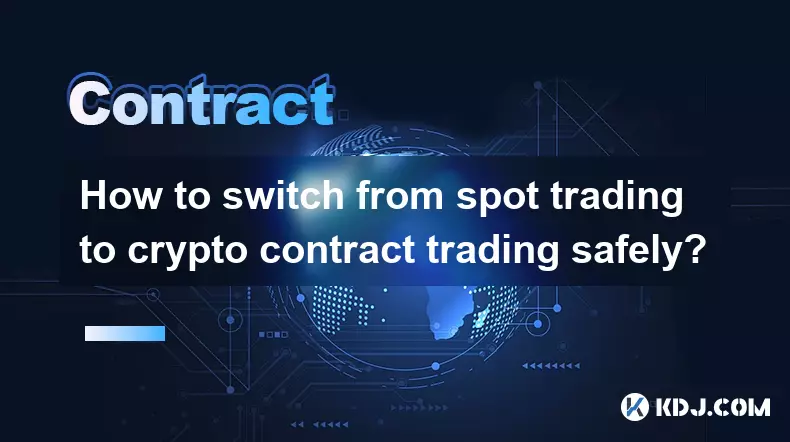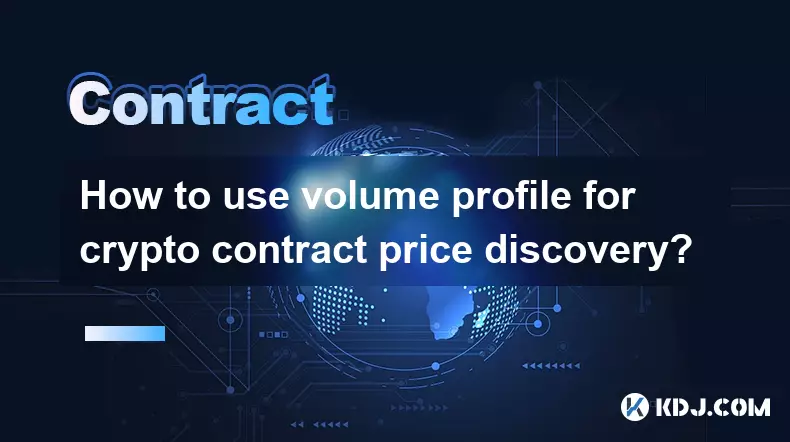-
 bitcoin
bitcoin $87959.907984 USD
1.34% -
 ethereum
ethereum $2920.497338 USD
3.04% -
 tether
tether $0.999775 USD
0.00% -
 xrp
xrp $2.237324 USD
8.12% -
 bnb
bnb $860.243768 USD
0.90% -
 solana
solana $138.089498 USD
5.43% -
 usd-coin
usd-coin $0.999807 USD
0.01% -
 tron
tron $0.272801 USD
-1.53% -
 dogecoin
dogecoin $0.150904 USD
2.96% -
 cardano
cardano $0.421635 USD
1.97% -
 hyperliquid
hyperliquid $32.152445 USD
2.23% -
 bitcoin-cash
bitcoin-cash $533.301069 USD
-1.94% -
 chainlink
chainlink $12.953417 USD
2.68% -
 unus-sed-leo
unus-sed-leo $9.535951 USD
0.73% -
 zcash
zcash $521.483386 USD
-2.87%
BitMEX contract trading method
BitMEX, a prominent cryptocurrency derivatives exchange, has gained popularity among seasoned traders due to its intuitive interface, sophisticated tools, and extensive contract offerings, enabling them to navigate the dynamic trading landscape effectively.
Nov 10, 2024 at 01:04 am

BitMEX Contract Trading Method: A Detailed Guide
BitMEX, one of the leading cryptocurrency derivatives exchanges, has emerged as a popular platform amongst experienced traders due to its user-friendly interface, advanced trading tools, and innovative contract offerings. This comprehensive article will delve into the intricacies of contract trading on BitMEX, providing a step-by-step guide that will equip traders with the necessary knowledge to navigate the platform successfully. By mastering the techniques outlined in this guide, traders can maximize their potential returns while mitigating risks in this fast-paced and dynamic trading environment.
Step 1: Understanding Cryptocurrency ContractsThe heart of contract trading lies in the concept of cryptocurrency contracts. These contracts are derivatives that allow traders to speculate on the price movements of underlying cryptocurrencies without actually owning them. Instead, traders enter into agreements to buy or sell a specific amount of cryptocurrency at a predetermined price, known as the strike price, on a future date.
Step 2: Choosing the Right ContractBitMEX offers a wide range of cryptocurrency contracts, each with unique characteristics and risk profiles. Some of the most popular contracts include:
- Bitcoin Perpetual Swaps (XBTUSD): These contracts allow traders to speculate on the future price of Bitcoin without an expiry date.
- Ethereum Perpetual Swaps (ETHUSD): Similar to XBTUSD, ETHUSD contracts provide leverage for traders looking to speculate on Ethereum's price movements.
- Altcoin Futures: BitMEX offers futures contracts for various altcoins, such as Cardano (ADA), Ripple (XRP), and Litecoin (LTC).
To trade on BitMEX, traders must first create an account. The registration process involves providing personal information, verifying your identity, and setting up two-factor authentication for enhanced security. It's essential to complete the verification process to unlock the platform's full functionality and trading options.
Step 4: Funding Your AccountOnce your trading account is set up, the next step is to fund it with either cryptocurrency or fiat currency. BitMEX supports deposits in Bitcoin, Ethereum, USD, and other cryptocurrencies. Traders can deposit funds through a variety of methods, including wire transfers, cryptocurrency wallets, and credit/debit cards.
Step 5: Placing Your TradeWith your account funded, you're ready to place your first trade. Navigate to the trading screen, select the contract you want to trade, and determine the trade parameters, including the order type, quantity, and leverage. BitMEX offers various order types, such as market orders, limit orders, stop orders, and trailing stops. Choosing the right order type depends on your trading strategy and market conditions.
Step 6: Managing Risk with LeverageOne of the key characteristics of contract trading is the ability to trade on leverage. Leverage allows traders to multiply their potential profits by borrowing funds from the exchange. However, leverage also amplifies potential losses. It's crucial to manage risk by using leverage prudently and adhering to a comprehensive risk management strategy.
Step 7: Monitoring Your TradesOnce your trades are in place, it's essential to monitor them diligently. BitMEX provides real-time market data, charting tools, and advanced analytics to help traders stay up-to-date on their positions, market trends, and trading performance. Effective risk management also involves setting stop-loss and take-profit orders to protect your capital and realize profits.
Step 8: Withdrawing Profits and Managing LossesWhen your trades are profitable, you can withdraw your earnings by transferring funds back to your own cryptocurrency wallet or bank account. However, it's equally important to manage losses effectively. If your trades result in losses, it's essential to evaluate the market conditions, analyze your trading strategy, and adjust your approach accordingly to mitigate future losses and protect your capital.
Disclaimer:info@kdj.com
The information provided is not trading advice. kdj.com does not assume any responsibility for any investments made based on the information provided in this article. Cryptocurrencies are highly volatile and it is highly recommended that you invest with caution after thorough research!
If you believe that the content used on this website infringes your copyright, please contact us immediately (info@kdj.com) and we will delete it promptly.
- Beyond the Forecast: Is Carol Kirkwood's Departure a Whisper of BBC's Lingering 'Token Woman' Problem?
- 2026-02-01 16:25:01
- Bitcoin Plunges Amidst Liquidity Worries: A Record Low for Crypto Sentiment?
- 2026-02-01 16:25:01
- Pi Network's Mainnet: A Crypto Milestone Unveils a Complex Market Picture
- 2026-02-01 16:20:02
- Top Watch: Emerging Cryptocurrencies Charting New Territories in 2026
- 2026-02-01 16:15:01
- Wall Street Whales, DeFi Dynamos, and the Cross-Asset Surge: Decoding BTC, ETH, and Hyperliquid's Latest Plays
- 2026-02-01 13:00:02
- Dogecoin's Identity Crisis: From Meme Darling to Digital Identity Quandary
- 2026-02-01 16:15:01
Related knowledge

How to understand the impact of Bitcoin ETFs on crypto contracts?
Feb 01,2026 at 04:19pm
Bitcoin ETFs and Market Liquidity1. Bitcoin ETFs introduce institutional capital directly into the spot market, increasing order book depth and reduci...

How to trade DeFi contracts during the current liquidity surge?
Feb 01,2026 at 07:00am
Understanding Liquidity Dynamics in DeFi Protocols1. Liquidity surges in DeFi are often triggered by coordinated capital inflows from yield farming in...

How to trade micro-cap crypto contracts with high growth potential?
Feb 01,2026 at 02:20pm
Understanding Micro-Cap Crypto Contracts1. Micro-cap crypto contracts refer to derivative instruments tied to tokens with market capitalizations under...

How to switch from spot trading to crypto contract trading safely?
Feb 01,2026 at 03:59pm
Understanding the Core Differences Between Spot and Contract Trading1. Spot trading involves the immediate exchange of cryptocurrencies for fiat or ot...

How to use volume profile for crypto contract price discovery?
Feb 01,2026 at 09:39am
Understanding Volume Profile Basics1. Volume profile is a visual representation of trading activity at specific price levels over a defined time perio...

How to trade crypto contracts on Bybit for the first time?
Feb 01,2026 at 04:00am
Setting Up Your Bybit Account1. Visit the official Bybit website and click the 'Sign Up' button located at the top right corner of the homepage. 2. En...

How to understand the impact of Bitcoin ETFs on crypto contracts?
Feb 01,2026 at 04:19pm
Bitcoin ETFs and Market Liquidity1. Bitcoin ETFs introduce institutional capital directly into the spot market, increasing order book depth and reduci...

How to trade DeFi contracts during the current liquidity surge?
Feb 01,2026 at 07:00am
Understanding Liquidity Dynamics in DeFi Protocols1. Liquidity surges in DeFi are often triggered by coordinated capital inflows from yield farming in...

How to trade micro-cap crypto contracts with high growth potential?
Feb 01,2026 at 02:20pm
Understanding Micro-Cap Crypto Contracts1. Micro-cap crypto contracts refer to derivative instruments tied to tokens with market capitalizations under...

How to switch from spot trading to crypto contract trading safely?
Feb 01,2026 at 03:59pm
Understanding the Core Differences Between Spot and Contract Trading1. Spot trading involves the immediate exchange of cryptocurrencies for fiat or ot...

How to use volume profile for crypto contract price discovery?
Feb 01,2026 at 09:39am
Understanding Volume Profile Basics1. Volume profile is a visual representation of trading activity at specific price levels over a defined time perio...

How to trade crypto contracts on Bybit for the first time?
Feb 01,2026 at 04:00am
Setting Up Your Bybit Account1. Visit the official Bybit website and click the 'Sign Up' button located at the top right corner of the homepage. 2. En...
See all articles
























![[Audio stories] Streamer Became a Billionaire Overnight After Buying One Junk Coin [Audio stories] Streamer Became a Billionaire Overnight After Buying One Junk Coin](/uploads/2026/02/01/cryptocurrencies-news/videos/origin_697eaa9a495ed_image_500_375.webp)

















































